0%
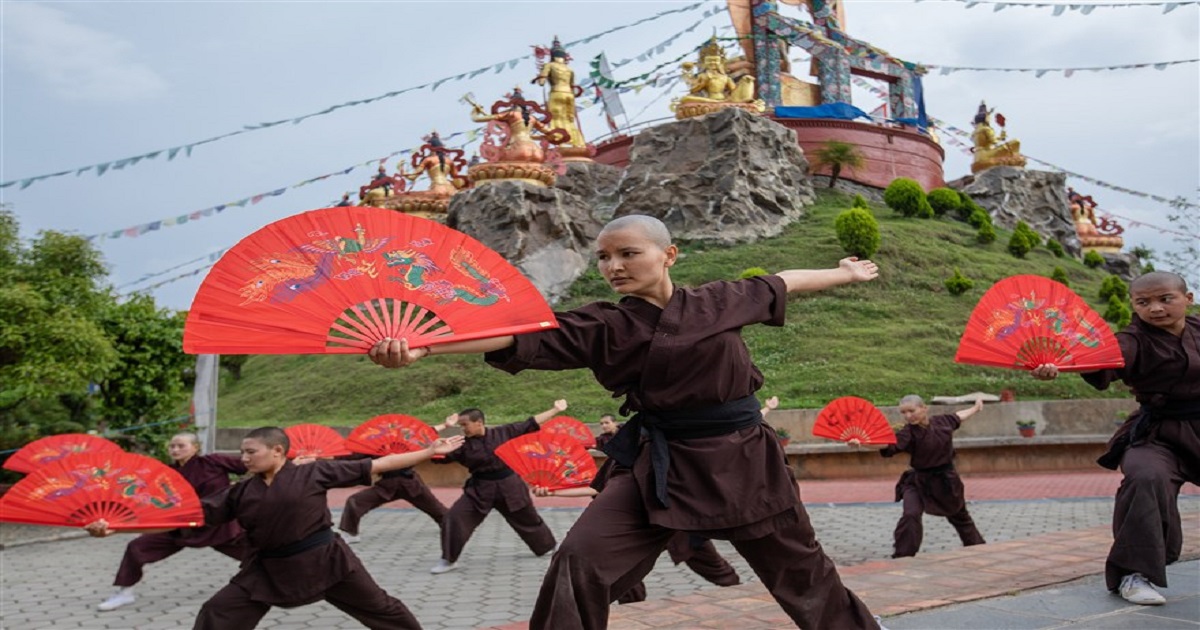
KATHMANDU: The Druk Amitabha Mountain Monastery in Kathmandu is the home of hundreds of young nuns rewriting their place in the Buddhist hierarchy while spreading a message of human rights and gender equality in villages across the Himalayas through kung fu.
Nuns between 14 and 30 years old are living in this Monastery. The nunnery opened almost 30 years ago with a mission to promote gender equality and empower the nuns, who have in turn taken it upon themselves to empower all women. There are now more than 1,000 Himalayan Buddhist nuns in the Drukpa Order who rotate among nunneries across India and Nepal.
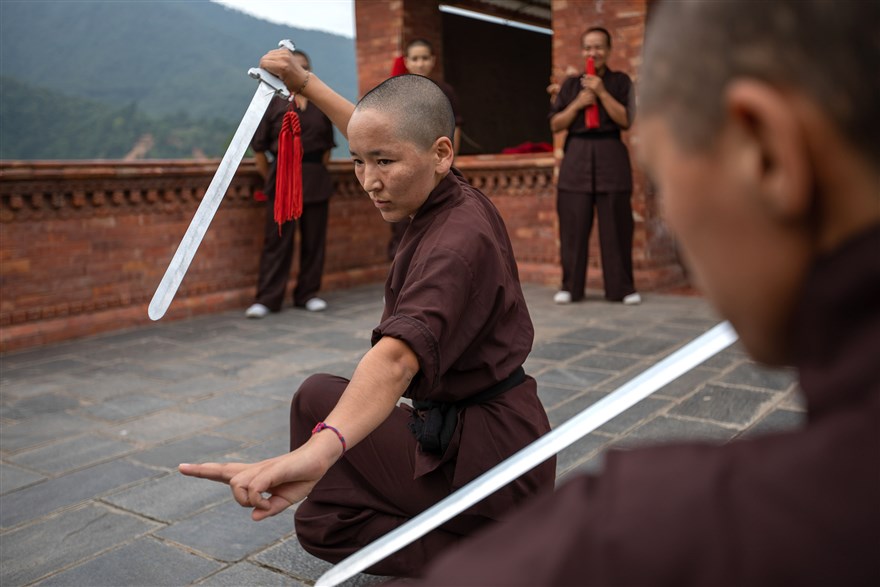
When girls and women are inducted into the nunnery, their hair is shaved off with an electric razor just before they don maroon robes.
“Hair is our most treasured jewel as a woman,” said Jigme Yeshe Lhamo, one of the longest-serving nuns at the Druk Amitabha Mountain Nunnery. “Our head is shaved though to break this deep attachment.”
The nuns were a conspicuous sight on a recent 5,200-mile bicycle trip from Kathmandu to Ladakh, India, with a mission to bring a message about the value of girls and the dangers of human trafficking. In this region, girls are often viewed as a burden and female fetuses are aborted, or girls are married off young or sold.
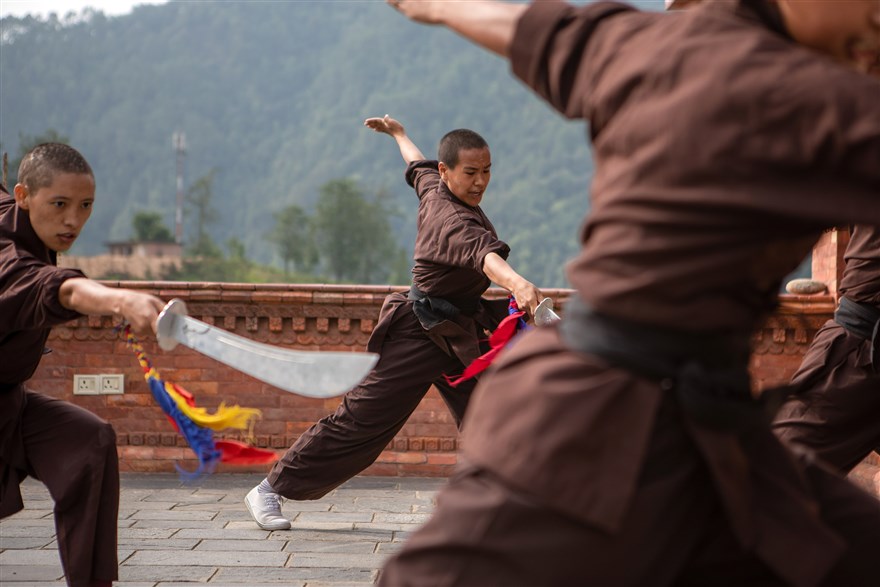
The Kung Fu Nuns of the Drukpa Order faced harassment and even violence from conservative pockets in the Himalayas when their leader, the Gyalwang Drukpa, promoted the nuns, once second-class citizens, to positions of leadership and teaching that were previously open only to monks. As a result, the Gyalwang brought in a dedicated kung fu master in 2008 to train the nuns in self-defense and with the hope that physical fitness would also inspire confidence.
“His holiness has always been someone who has spoken out for women empowerment and gender equality, so our nuns have always been different from others. We have had many opportunities that other nuns will never have,” Jigme Konchok Lhamo said.
Each kung fu session begins and ends with laps around the temple. The technical skill is regarded as less important than physical conditioning.
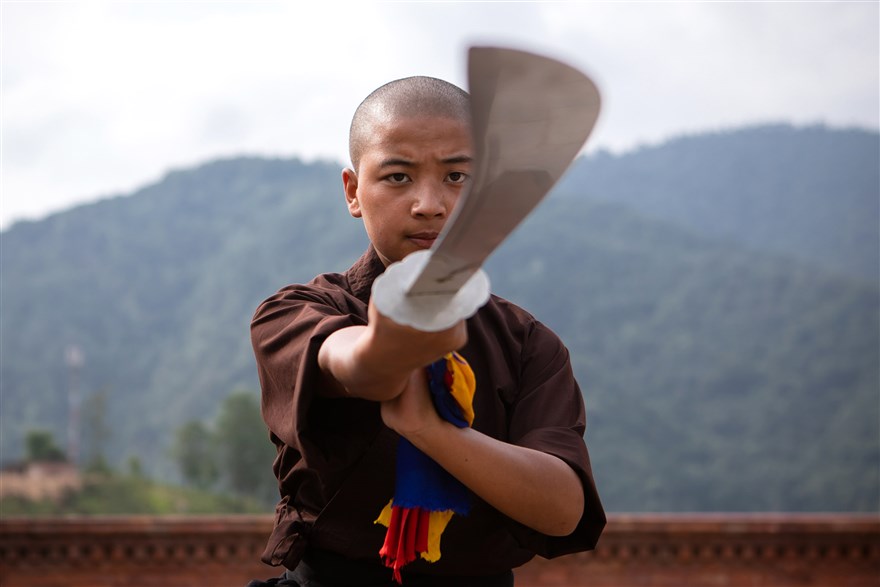
“We felt ourselves become strong, physically and mentally,” Jigme Tsering Chorol explained. “And we asked ourselves why other girls couldn’t be taught the same.”
The nuns trained for six years before launching self-defense workshops in India and Nepal for girls, many of whom face a high risk of rape or sexual assault.
“In six days, we are not able to teach them everything. We teach them specific moves, but we also talk to them and encourage them. We wanted to tell the girls that they should at least have a voice for themselves,” Jigme Konchok Lhamo said.
The nuns begin their day at 3 a.m. and practice kung fu every evening shortly before sunset. They have now given self-defense workshops to almost 400 girls across India and Nepal. At the end of October, they received the 2019 Asia Game Changers award from the Asia Society in New York.
“We do not choose the girls; whoever wants to come can,” Lhamo said, explaining that girls of all religions and backgrounds are welcome. “We do not spread Buddhism, we spread humanity.”
The Kung Fu Nuns of the Drukpa Order know that if they cannot defend themselves, they cannot defend others. The vulnerable girls they teach are given physical skills, as well as an education on equality.
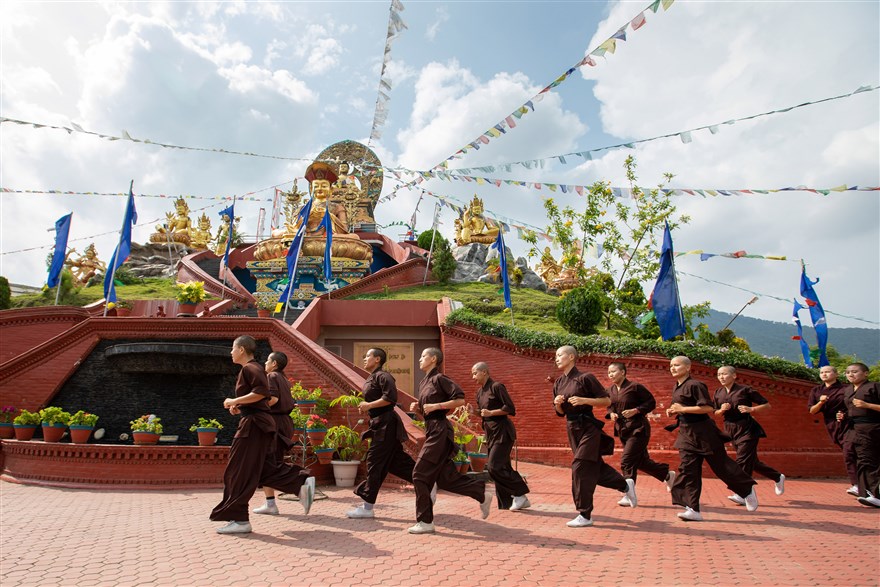
“Every girl has a dream; every girl has an aim. We just want to help them find courage,” Jigme Konchok Lhamo said.
The nuns say that their kung fu skills go hand in hand with their practice of Buddhism. They often need to dispel the idea that kung fu is violent, and explain that it is solely for self-defense. Meanwhile, the concentration they need for kung fu has helped them to be able to meditate longer.
In addition to practicing choreographed kung fu routines and educating girls in self-defense, the nuns are responsible for the care and upkeep of the nunnery. They run the office, do plumbing work and repair the damage from the 2015 earthquake. They also rescue animals, including dogs, horses, and sheep, and give them amusing haircuts including Mohawks and pigtails.
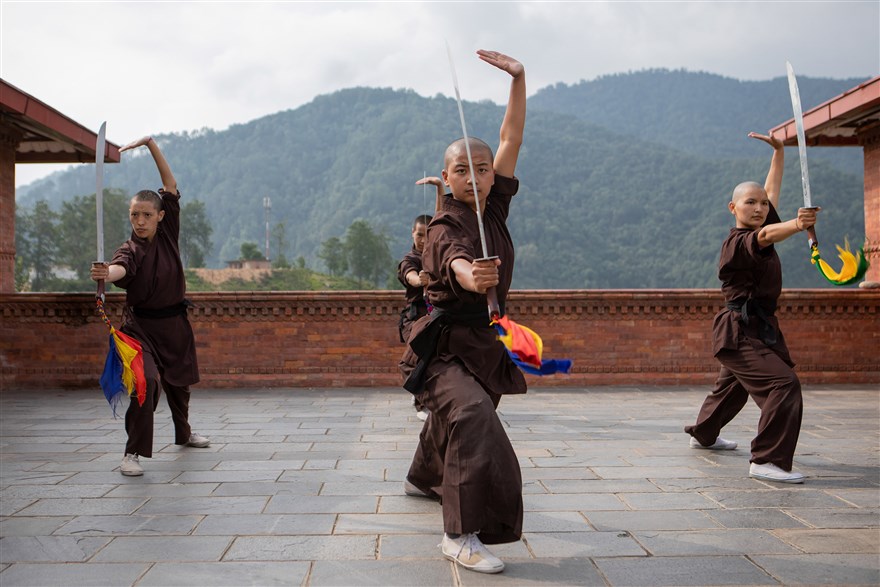
“Everyone thinks that being a nun is [just] spiritual, but it is not like that. We all have a chance to live whatever life we want to live,” Jigme Konchok Lhamo said.
(Text/ Photo from NBC News)